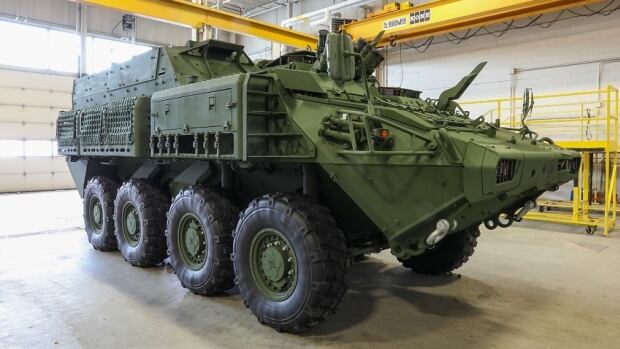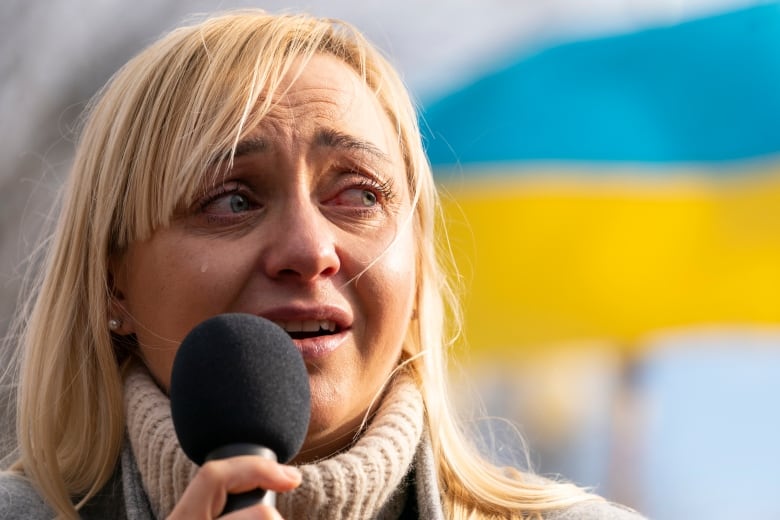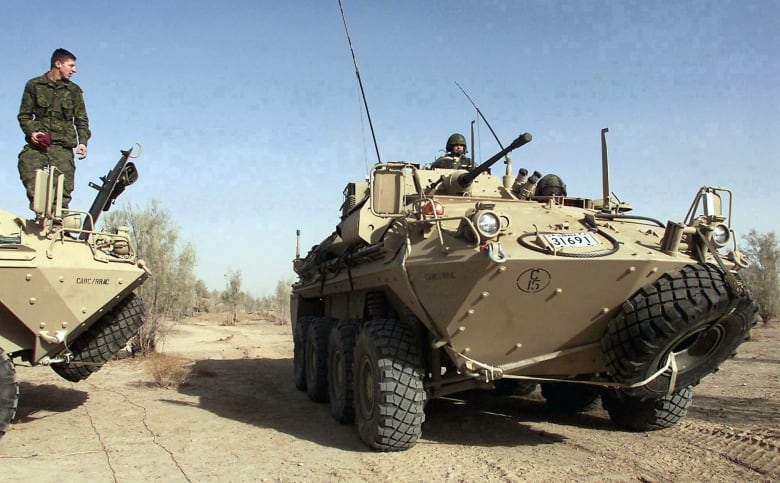
Defence Minister Bill Blair says the first ten of 50 Armoured Combat Support Vehicles (ACSVs) promised to Ukraine last year will be delivered to the war-torn country by this summer, but likely won’t be fully in service until the fall.
The newly manufactured vehicles, from General Dynamics Land Systems in London. Ont., were part of $650 million in military support pledged during the visit to Ottawa by Ukrainian President Volodymyr Zelenskyy last fall.
In a media release that followed Friday’s meeting of the Ukraine Defense Contact Group — 56 countries committed to keeping Ukraine armed in its war with Russia — Blair said the ACSVs will be delivered to Europe this summer and Ukrainian soldiers will be trained in their use before they are delivered to the front this fall.
Additionally, he said, 10 Multirole Boats from Zodiac Hurricane Technologies — promised in January — are set to be delivered in July, and they include training for Ukrainian operators as well as spare parts.
The remarks from the defence minister come a week after a leading Ukrainian politician met with Blair and a number of Canadian lawmakers and pleaded for more armoured vehicles.
Oleksandra Ustinova, the head of Ukraine’s special parliamentary commission on arms and munitions, told the minister, members of key House of Commons committees and military leaders that both time and weapons stocks are running out for her country.

She said Ukraine is interested even in armoured vehicles the Canadian military is planning to retire, regardless of their condition.
“Ukrainians are ready to take even junk, tear it apart and make one out of three machines. This is something that can protect our soldiers,” Ustinova told CBC News last week.
Last year, figures put before the House of Commons revealed the Canadian army has 195 LAV II Bisons and 149 Coyote armoured reconnaissance vehicles that have been, or are about to be, taken out of service.
The Department of National Defence (DND) also says 67 tracked light armour vehicles (TLAVs) out of a fleet of 140 are awaiting final demilitarization and disposal, or are being used as sources of spare parts for the 73 vehicles still in service.

The department has insisted that the vehicles awaiting final demilitarization and disposal are in poor condition.
The pleas for more armoured vehicles come as warnings about the likelihood of a major Russian offensive in Ukraine grow louder.
The Washington-based Institute for the Study of War (ISW) said this week that such an offensive could begin in the coming weeks.
Aid delays helped Russia gain ground, think-tank says
The assessment was made after the United States finally approved a new series of arms supplies, despite concerns that the assistance won’t reach Ukraine in time.
Delays in Western assistance have helped Russia make incremental gains along the frontline over the winter, the ISW said.
At Friday’s meeting of allies, held virtually, Blair also announced that Canada is donating $3 million to Ukraine for the production of drones by Ukraine’s domestic defence industry.
The plan marks the first time that Canada is contributing directly to the production of military drones in Ukraine. The donation is being made in collaboration with the United Kingdom.
Canada is also contributing an additional $13 million — on top of $40 million previously announced — toward the purchase and delivery of artillery rounds, a project spearheaded by the Czech government.
Canada also will send an additional 100 SkyRanger drones manufactured by Teledyne FLIR in Waterloo, Ont. In February, the government announced it would supply 800 of the remotely operated aircraft.